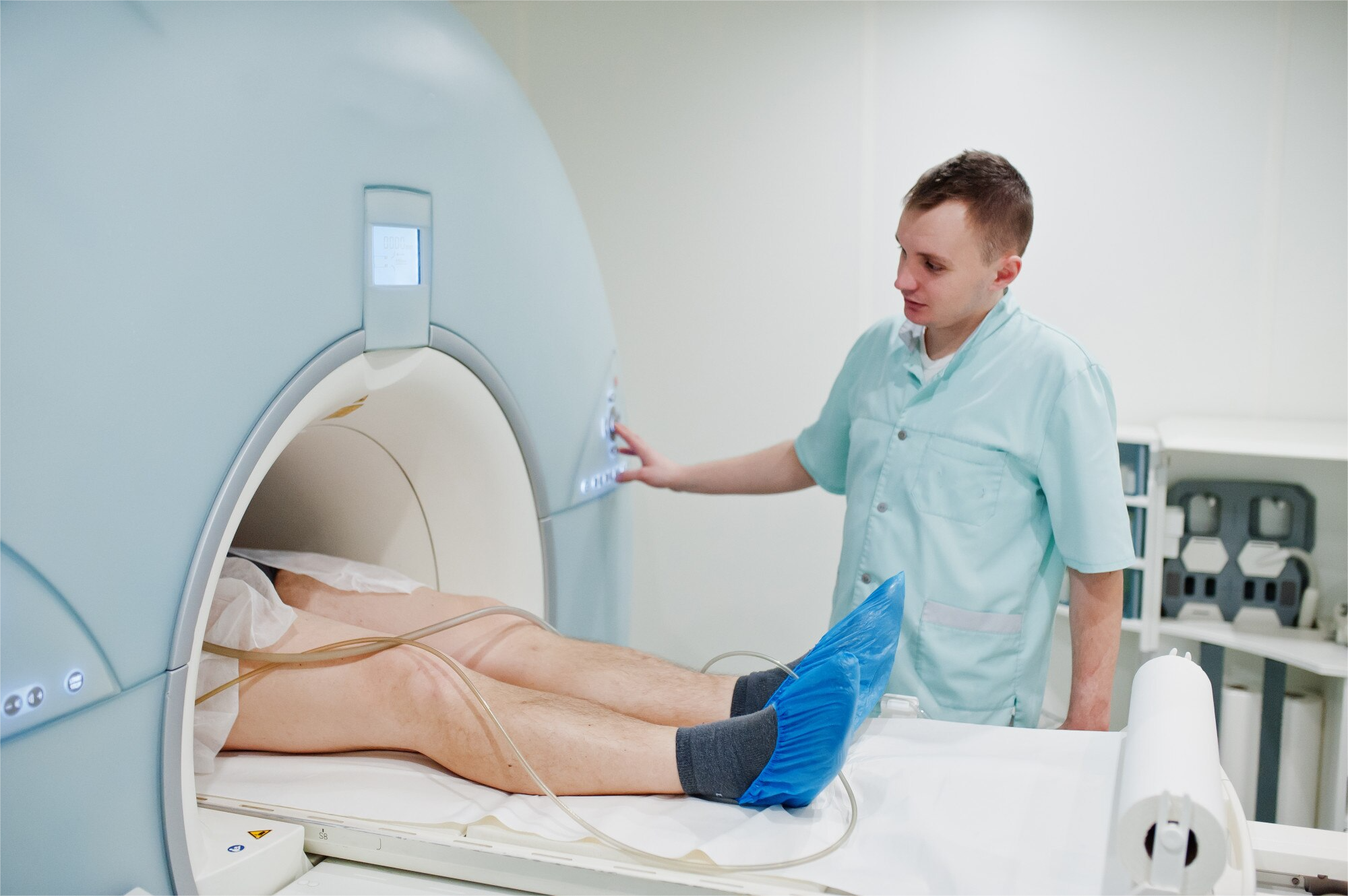Why Avoid Caffeine Before Prostate MRI: Important Reasons
Contents
Avoiding caffeine before a prostate MRI is crucial as it can interfere with imaging results, causing muscle contractions and affecting the accuracy of the scan.

Magnetic Resonance Imaging (MRI) has become an essential diagnostic tool in the healthcare field, allowing doctors to see detailed images of the internal structures of the body.
In the case of prostate issues, such as suspected prostate cancer or benign prostatic hyperplasia (BPH), an MRI of the prostate can provide invaluable insights into the size, shape, and condition of the prostate gland.
While preparation for an MRI may vary depending on the type of MRI and the area being scanned, there is one common recommendation that often raises questions among patients: Why is it necessary to avoid caffeine before a prostate MRI?
Avoiding caffeine before a prostate MRI is essential as it can increase heart rate, cause bladder urgency, and interfere with imaging quality, leading to inaccurate results.
In this comprehensive guide, we will delve into the reasons behind this recommendation, explore the effects of caffeine on MRI imaging, and discuss how to best prepare for a prostate MRI to ensure the most accurate results.
What Is a Prostate MRI?
A prostate MRI is a non-invasive imaging test that uses strong magnetic fields and radio waves to produce detailed images of the prostate gland and surrounding tissues.
This imaging technique is highly effective in detecting abnormalities in the prostate, such as tumors, inflammation, or enlargement, and is often used to assist in the diagnosis of prostate cancer, benign prostatic hyperplasia (BPH), or prostatitis.
There are different types of prostate MRIs, including multiparametric MRI (mpMRI), which combines several MRI sequences to create a more detailed image, especially useful in cancer detection.
Before undergoing this procedure, patients are typically asked to refrain from certain activities or substances, with caffeine being one of the most commonly mentioned restrictions.
The Impact of Caffeine on MRI Results
Caffeine is a stimulant that affects the central nervous system and can have a variety of physiological effects on the body.
Some of these effects, while generally harmless in everyday life, can interfere with the accuracy of an MRI scan.
Understanding why caffeine should be avoided before a prostate MRI involves looking at how caffeine impacts your body and how it can interfere with the imaging process.
1. Increased Heart Rate and Blood Pressure
Caffeine is well known for its ability to stimulate the heart and increase blood pressure. When you consume caffeine, whether in coffee, tea, or other sources, it acts as a stimulant that can cause your heart rate to increase.
This elevated heart rate, coupled with higher blood pressure, can interfere with the imaging process by creating motion in the body during the scan.
In an MRI, even the slightest movement can result in blurry or distorted images, which can compromise the diagnostic quality of the scan.
For a prostate MRI, clear and detailed images of the prostate gland are critical to accurately diagnosing any potential issues. Increased heart rate and blood pressure caused by caffeine consumption can lead to a less stable scan, which may require the procedure to be repeated.
2. Increased Urinary Frequency
Caffeine is also a well-known diuretic, meaning it increases urine production. Before an MRI, especially a prostate MRI, it is essential to ensure that the bladder is not too full or too empty during the scan.
A full bladder is sometimes required to help better visualize the prostate, but caffeine can cause an urge to urinate more frequently, potentially disrupting the timing of the MRI or causing discomfort during the scan.
A full bladder is necessary in many prostate MRI procedures to help push the bowel out of the way and allow for better visualization of the prostate.
However, excessive caffeine consumption can make it difficult for patients to maintain the required bladder fullness for an optimal scan.
3. Muscle Tension and Discomfort
In addition to stimulating the heart and affecting the bladder, caffeine can also increase muscle tension. Some people experience tightness in their muscles after consuming caffeine, which can make it harder for them to relax during an MRI.
This tension may cause the body to move slightly during the procedure, which can result in poor-quality images.
Because prostate MRIs often require patients to remain still for an extended period of time, any unnecessary movement due to muscle tension or discomfort can lead to blurred images and reduced accuracy in the results.
This is particularly problematic in diagnostic tests like prostate MRIs, where precise images are needed to assess the size, shape, and health of the prostate gland.
4. Anxiety and Restlessness
Caffeine is also associated with increased anxiety and restlessness in some individuals. For patients who are already anxious about undergoing a prostate MRI, the added stimulant effects of caffeine can exacerbate feelings of nervousness and discomfort.
Increased anxiety can lead to an inability to remain still, which, as mentioned earlier, is crucial for obtaining clear and accurate MRI results.
A relaxed and calm state is essential during an MRI, as movement can cause image distortion. By avoiding caffeine before the procedure, patients can help ensure they remain calm and still throughout the scanning process.

Preparing for a Prostate MRI: What to Do and What to Avoid
To ensure that your prostate MRI provides the most accurate and detailed images, it’s essential to follow the preparation guidelines provided by your healthcare provider.
One key element of preparation is avoiding caffeine in the hours leading up to the procedure. Here are some additional tips to keep in mind when preparing for a prostate MRI:
1. Avoid Caffeine for 12-24 Hours Before the MRI
Typically, patients are advised to avoid caffeine for at least 12 to 24 hours before the MRI. This gives the body enough time to clear the caffeine from the system and reduce its potential impact on the imaging process. Depending on the specific instructions provided by your healthcare team, you may be asked to avoid caffeine for an even longer period, especially if you are undergoing a more complex prostate MRI procedure.
2. Follow Instructions About Food and Drink
In addition to avoiding caffeine, you may be given other specific instructions regarding food and drink before your MRI. Some patients may be asked to fast for a few hours before the procedure, while others may be instructed to drink a certain amount of water to fill the bladder. Follow your healthcare provider’s instructions carefully to ensure the best results.
3. Wear Comfortable Clothing
You will likely be asked to change into a hospital gown for the MRI, but it’s still a good idea to wear comfortable, loose-fitting clothing that is easy to remove. Prostate MRIs often require you to lie on your back for an extended period, so comfort is important.
4. Stay Calm and Relaxed
To avoid anxiety and restlessness during the procedure, try to relax before the MRI. Deep breathing exercises or mindfulness techniques can help calm your nerves and prevent unnecessary movement during the scan.
5. Inform the Technician of Any Concerns
If you are particularly anxious about the procedure or have concerns about the restrictions, including the caffeine guidelines, be sure to discuss them with the MRI technician before the procedure begins. They can provide helpful information and guidance to help ease any concerns you may have.
What Happens During a Prostate MRI?
A prostate MRI typically takes between 30 to 60 minutes to complete, depending on the type of scan and the specific imaging technique used.
During the procedure, you will be asked to lie on a table that slides into a large tube-like machine, which creates the magnetic field necessary for the MRI. You may need to lie still for extended periods of time while the images are being captured.
In some cases, a contrast agent may be used to enhance the images, making certain structures more visible. This contrast material is typically injected into a vein in your arm before the scan begins.
Benefits of Avoiding Caffeine Before a Prostate MRI
While avoiding caffeine may seem inconvenient, the benefits of doing so far outweigh the discomfort of temporarily cutting out this stimulant.
By following the caffeine restrictions before your prostate MRI, you are helping to ensure that the images obtained are of the highest possible quality, which allows for a more accurate diagnosis and treatment plan.
Caffeine can cause several issues, from increased heart rate and muscle tension to anxiety and frequent urination, all of which can affect the quality of your prostate MRI results.
By abstaining from caffeine, you give yourself the best chance of having a smooth, successful procedure.
Conclusion
In conclusion, while it may seem like a small detail, avoiding caffeine before a prostate MRI is an important step in ensuring the success of the procedure.
Caffeine can have several effects on the body, including increasing heart rate, affecting blood pressure, causing muscle tension, and increasing anxiety, all of which can interfere with the imaging process.
By following the preparation instructions provided by your healthcare provider, including avoiding caffeine for 12-24 hours prior to the MRI, you can help ensure that your prostate MRI is as accurate and effective as possible.
Taking these simple steps can ultimately lead to better diagnosis and better treatment options, allowing you to take control of your prostate health.
.
.
References
- American Urological Association. (n.d.). Benign Prostatic Hyperplasia (BPH).
- Mayo Clinic. (2022). Benign Prostatic Hyperplasia (BPH).
- National Institute of Diabetes and Digestive and Kidney Diseases. (2020). Benign Prostatic Hyperplasia.
- Cleveland Clinic. (2021). Prostate Enlargement (BPH) – Symptoms, Causes, Treatment.
How useful was this post?
Click on a star to rate it!
Average rating 0 / 5. Vote count: 0
No votes so far! Be the first to rate this post.
